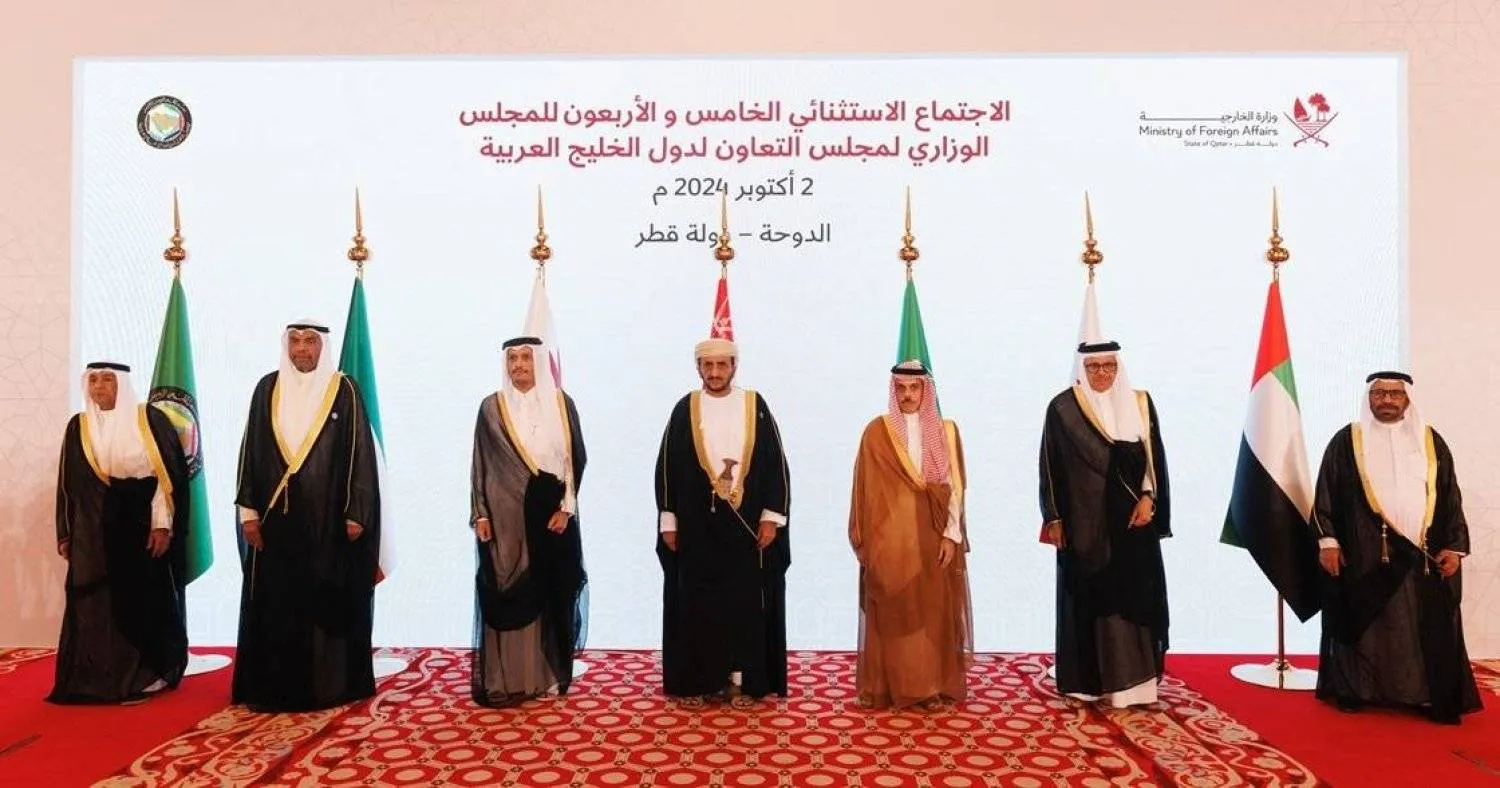The Foreign Ministers of the Gulf Cooperation Council have condemned the escalation in Lebanon and the Palestinian territories, and emphasized the necessity of protecting the region's security.
In a statement following a meeting of the GCC Ministerial Council in Doha on Wednesday, the ministers said the escalation poses a threat to international peace and security and undermines efforts for peace and security in the region and the world.
The ministers “emphasized the necessity of protecting the region's security and preventing the expansion of the conflict.”
The Council also called on all parties involved in this escalation to exercise restraint, cease violence, and prioritize dialogue.
The statement urged the international community to fulfill its responsibilities to maintain security and stability in the region and to implement international legitimacy resolutions related to the area.
On Lebanon, the ministers affirmed the GCC’s support for the Lebanese people, and called for “intensifying international and regional efforts to provide urgent humanitarian assistance to Lebanon to alleviate the suffering of civilians and protect them from any serious repercussions.”
“The Council stressed the necessity of implementing UN Security Council Resolution 1701, related international resolutions, and the Taif Agreement to restore lasting security and stability in Lebanon and ensure respect for the integrity of its territory, political independence, and sovereignty within its internationally recognized borders,” said the statement.
On Palestine, the Council also affirmed the GCC’s support for the Palestinian people, condemning the Israeli aggression against Gaza and the West Bank.
“It called for an immediate and permanent ceasefire in the Gaza Strip, the lifting of the blockade imposed on the area, and the release of hostages and detainees.”
The ministers “emphasized the importance of opening all crossings immediately and unconditionally, ensuring the delivery of all relief, humanitarian, medical supplies, and basic needs to the residents of Gaza in accordance with international law and international humanitarian law.”
The Council emphasized the importance of the efforts of the Ministerial Committee chaired by “Saudi Arabia, which was formed by the extraordinary joint Arab-Islamic summit to stop the Israeli aggression against the Palestinian people, as well as to mobilize international support for the State of Palestine in its quest for recognition by more countries, in addition to supporting its bid for full membership in the United Nations, and to convene an international peace conference.”
The ministers also reaffirmed the need to end Israeli occupation, and the support for the sovereignty of the Palestinian people over all Palestinian territories occupied since June 1967.
They called for the establishment of an independent Palestinian state with East Jerusalem as its capital, in accordance with the Arab Peace Initiative and international resolutions.
The Council expressed its support for the outcomes of the Ministerial Meeting held by the committee chaired by Saudi Arabia, which was formed by the extraordinary Arab-Islamic summit in collaboration with Norway and the European Union in order to launch the “The Global Alliance for the Implementation of the Two-state Solution” to realize the Palestinian state, in accordance with relevant UN resolutions and the Arab Peace Initiative.









